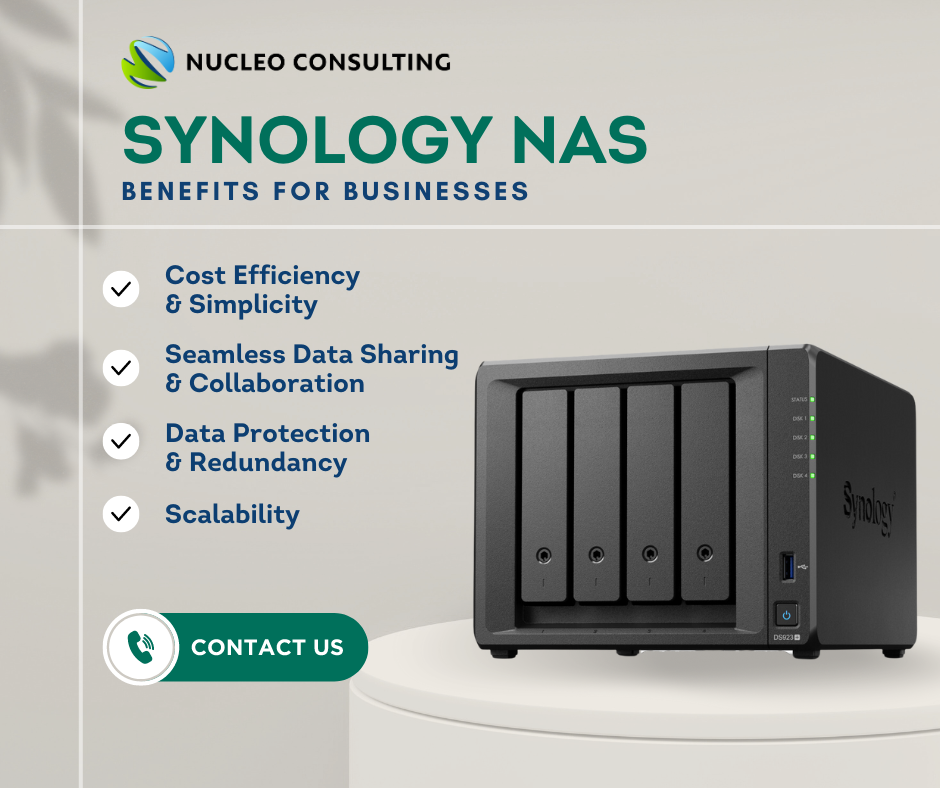[3 mins read]
In today’s rapidly evolving world of business, data management, file storage, and accessibility are crucial components for modern businesses. The Network Attached Storage (NAS) emerges as an essential tool for businesses to manage their digital assets effectively. A NAS not only provides a reliable storage solution for data but also benefits businesses by providing accessibility and effective collaboration among employees.
Understanding Network Attached Storage (NAS)
A Network Attached Storage (NAS) is a dedicated storage device connected to a network, designed to facilitate data sharing and file storage in a centralized manner. Unlike traditional servers, NAS systems are specialized in storage and file-sharing functions, making them an optimal choice for small and medium businesses seeking a cost-effective solution to their data management needs.
The Functionality of NAS
A NAS device operates as a shared drive on a network, accessible to authorized users. It allows businesses to store, share, organize, and manage their data in a secure and scalable environment. NAS devices can be configured with multiple hard drives, which can be set up in various RAID configurations to provide redundancy and prevent data loss in case of drive failures. This feature alone highlights the importance of NAS in maintaining data integrity, which is a critical concern for businesses of any size.
Benefits of NAS for Businesses

- Cost-Efficiency & Simplicity: Setting up a dedicated server can be more expensive and complex as compared to setting up a NAS. It often requires specialized IT knowledge. In contrast, NAS devices are designed with user-friendly interfaces, making them easier to use and manage without extensive IT expertise. This simplicity translates into cost savings, as businesses can allocate resources more efficiently in the long run.
- Data Sharing & Collaboration: Seamless data sharing and collaboration among team members are an absolute necessity in businesses of all sizes. NAS facilitates real-time access to shared files, enhancing collaboration without relying on third-party cloud services.
- Data Protection & Redundancy: NAS systems offer data redundancy features, which safeguard critical business information. In case of a drive failure, the data remains accessible, minimizing downtime and potential losses.
- Scalability: As businesses grow, so do their data storage needs. Most NAS devices are expandable, allowing additional storage capacity to be easily integrated into the existing setup without disrupting operations.
Shortfalls of NAS vs. Servers
While NAS provides numerous benefits for small businesses, it’s important to acknowledge its limitations in comparison to full-fledged servers:
- Limited Processing Power: NAS devices prioritize storage and file sharing over processing power. While they can handle routine tasks, they may struggle with resource-intensive applications.
- Specialized Functionality: Servers offer a wider array of functions beyond storage, such as running applications, hosting websites, and managing databases. If a business requires these capabilities, a server might be more suitable.
The Essentiality of NAS for Small and Medium Businesses
In today’s competitive business landscape, businesses cannot afford to overlook the significance of efficient data management. A NAS presents an ideal solution, offering a balance between affordability and functionality. It not only streamlines data storage and sharing but also reinforces data security, collaborative efforts, and scalability, making it a popular choice among small and medium enterprises (SMEs).
In conclusion, Network Attached Storage (NAS) is an essential equipment for businesses of all sizes. Its ability to streamline data management, provide secure storage, and foster collaboration makes it an indispensable tool for any business aiming to thrive in the digital age. By embracing NAS technology, businesses can better position themselves for growth, efficiency, and a competitive edge in the modern business ecosystem.
IT Tips | NAS | Data Storage | Data Management | Synology | Data Backup | Data Recovery | Data Sharing | File Sharing | File Storage | SME